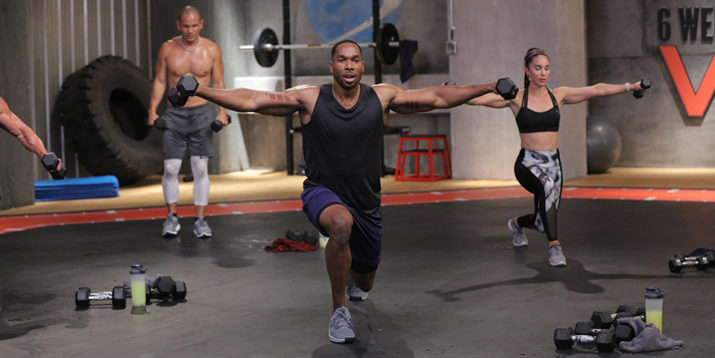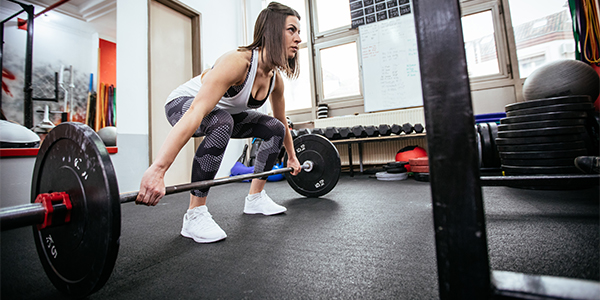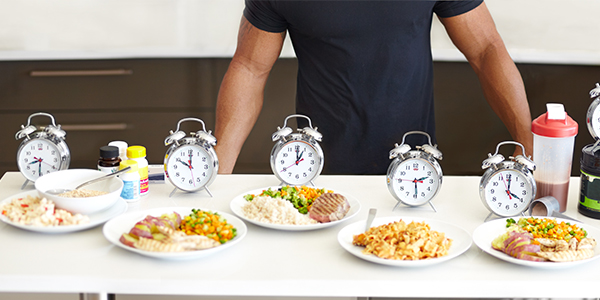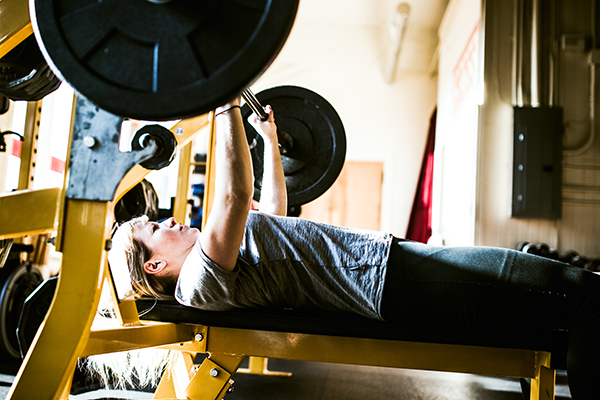6 Most Important Tips for Building Muscle

Whether your goal is to get bigger and stronger or improve power and explosiveness for sports, you want to see progress — and pronto.
But building muscle efficiently requires more than just putting in time at the weight rack.
Along with your strength-training regimen, diet, and lifestyle choices all play important roles.
For those seeking muscle-building tips, here are some strategies to get you started.
Pro tips: Check out the programs on muscle-building Beachbody On Demand — LIIFT4, LIIFT MORE, 6 Weeks of THE WORK, Body Beast, 645, and more — and see which one is right for you.
For those seeking tips on how to gain muscle, here are some strategies to get you started.
1. Perform Multi-Joint Exercises

Resistance training is the most efficient way to build lean mass — especially if you pack your workouts with big, compound (multi-joint) moves like the squat, bench press, lunge, and pull-up.
“You can certainly build muscle with all types of moves, but a strong base in multi-joint efforts, at least some of the time, is a good idea,” says Michael Ormsbee, Ph.D., interim director of the Institute of Sports Science & Medicine at Florida State University.
Science agrees: Compound exercises cause the greatest increase in testosterone, a key muscle-building hormone, according to researchers at the University of Connecticut.
2. Don’t Just Lift Heavy
When you lift heavy weights or do explosive exercises like sprinting, you target the type II muscle fibers we discussed earlier.
But studies show that type I fibers (aka slow-twitch — the kind used in endurance activities) also have growth potential, so don’t ignore them.
Once every week or two, target those type I fibers with low-weight, high-rep work (e.g., 3–4 sets of 15 or more reps per exercise).
Or simply follow a Beachbody program such as Body Beast, 21 Day Fix, P90X, 22 Minute Hard Corps, or The Master’s Hammer and Chisel, which have that kind of variation built in.
3. Get Plenty of Shut-Eye

Shoot for a minimum of 7 hours a night. Getting less than that on a regular basis can cause you to rack up sleep debt, which can put the brakes on protein synthesis (aka muscle growth) and increase protein (read: muscle) degradation, according to a study by Brazilian researchers.
Plus, you won’t reap the full benefits of the human growth hormone, the levels of which spike while you’re in dreamland.
Have trouble sleeping? Try these natural tips on how to get good sleep tonight.
4. Increase Weight Responsibly
You need to challenge your muscles to trigger growth, but you also need to be smart about how you go about it.
If you increase the amount of weight you’re lifting too quickly, you’ll increase your risk of injury.
But if you do it too slowly, you’ll shortchange your results or hit a plateau.
So how do you strike a balance? Pay attention to the effort you’re exerting.
If you’re lifting with perfect form, and your last few reps of an exercise feel similar to your first few, you know it’s time to reach for a heavier weight.
5. Allow Time for Recovery

Muscles grow between workouts, not during them, so make recovery a priority. In practice, that means eating healthier, consuming more protein, and not overtraining.
Take at least 1 to 2 days off per week to allow your muscles to fully recover.
“Training too often or at too high an intensity too frequently — without rest and recovery — can actually hurt your muscle-building efforts,” says Ormsbee.
Your move: Take at least 1 to 2 days off per week to allow your muscles to fully recover, and maximize the effectiveness of your downtime by doing light cross training (e.g., hiking, cycling) or activities like foam rolling and yoga.
If you are patient, focused, and consistent with your workouts and recovery, you will see results.
6. Eat More Protein
Now that you’re lifting weights, you need to consume more protein to promote muscle repair, recovery, and growth since amino acids (the building blocks of protein) are necessary to build muscle tissue.
When you’re planning your high-protein meals, 20 grams of protein is the optimal amount generally accepted for muscle growth.
Research has found that the body doesn’t use much more than 20 grams for muscle building at any one sitting.
Around 80 grams of protein per day (or four meals containing 20 grams of protein each) is about right for most people.
If you want to calculate the optimal protein amount for you and your goals, Beachbody recommends 0.5 to 0.9 grams of protein per pound of desired lean body weight per day, depending on exercise intensity.
(The harder the workout, the more protein is needed for growth and recovery.)
If you have ambitious muscle-building goals, shoot for the higher end of the range by adding one or two protein-rich snacks to your day.
Nutritional Tips for Muscle Building

In addition to consuming more protein, there are a number of nutritional steps you can take to bulk up responsibly.
1. Increase calories
“No one can be in a significant calorie deficit and gain muscle,” says Albert Matheny, M.S., R.D., C.S.C.S., co-founder of SoHo Strength Lab.
To find out how many more calories you should consume to gain weight, determine how many calories you need to maintain your current weight — your baseline — then add 300.
And if you’re following a muscle-building program like Body Beast, add the recommended calories outlined in the guide.
2. Strike the right mix of macros
Whether your calories come from carbs, fat, or protein goes a long way in determining whether your weight gain comes from muscle or from fat.
An easy and relatively fast way to gain muscle is bulking up first, then leaning out.
Using this method, you only have to focus on one thing at a time — building, then getting lean, versus trying to increase mass while simultaneously limiting fat gain.
To increase weight gained from fat, your macros should emphasize carbohydrates and fat, since it’s the most calorically dense macronutrient.
The bulk of that fat should come from unsaturated sources such as avocado, olive oil, and salmon.
3. Focus on post-workout nutrition
Generally, you should consume about 20 grams of protein with some carbs shortly after a workout.
One way to get the right mix is with Beachbody Performance Recover, which combines time-released proteins and phytonutrients to aid recovery and reduce muscle breakdown.
During the post-workout anabolic window, you’ll also want to limit fats, which can slow the absorption of protein.
While there is some recent research that suggests the window may actually extend up to several hours following exercise, there’s no harm in getting nutrients in early as long as you’re sticking to your overall caloric and macronutrient goals.
3 Factors Affecting Muscle Growth

These are the main criteria dictating increases in muscle size or hypertrophy — and two of them are outside your control.
Sex
Simmer down — we’re talking gender. The male persuasion unsurprisingly has a decided advantage when it comes to building muscle.
That’s due in large part to far greater levels of testosterone and a higher red blood cell count among men than women, who typically have to go to more extraordinary lengths to gain size.
Genetics
Similar to the way it governs how much hair you get to keep, heredity determines how much muscle you can develop.
Thanks to genetics, a segment of the populace are born with a higher number of type II, or fast-twitch, muscle fibers, which have the greatest potential for growth.
Training specificity
The factor you can change — and the one we’ll spend much of this article focusing on — is the overall approach you take to your workouts.
There are different protocols that distinguish lifting for mass from lifting for strength.
Generally speaking, lifting very heavy weights in low volume is how to gain strength, and lifting moderately heavy weights in high volume is how to gain muscle.
